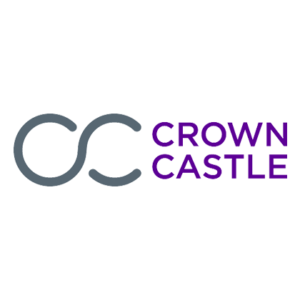 In order to highlight Austin Tech Alliance’s growing membership of organizations who support our mission to promote civic engagement in Austin’s tech sector, we regularly feature members. Up this month: Crown Castle.
In order to highlight Austin Tech Alliance’s growing membership of organizations who support our mission to promote civic engagement in Austin’s tech sector, we regularly feature members. Up this month: Crown Castle.
Introduce your organization and how it contributes to Austin’s tech sector.
We live in a world where connectivity is no longer a luxury, it’s an absolute necessity. Smarter devices, faster data, and new technologies have led to a dramatic shift in the way people consume information and how businesses apply it, leading to a significant increase in data demand and usage. This connectivity, data access and subsequent growth potential requires an intricately connected web of communications infrastructure.
That’s where Crown Castle comes in. Crown Castle owns, operates and leases more than 40,000 cell towers, approximately 75,000 route miles of dense, high-capacity fiber and approximately 65,000 small cells on air or under contract in the top U.S. markets. This nationwide portfolio of communications infrastructure connects cities and communities to essential data, technology and wireless service – bringing information, ideas and innovations to the people and businesses that need them.
Here in Austin, Crown Castle has partnered with the University of Texas for years and has built out a wireless network capable of supporting 5G throughout the campus, including in DKR Stadium.
Crown Castle has also been working with the City to build the foundation for the fast-approaching 5G revolution, deploying miles of fiber, constructing 17 small cell nodes and investing millions in Downtown Austin with this work.
Why does your organization love Austin?
Austin is a vibrant city that showcases its diversity and laid-back attitude through its food, culture, creativity, music and more – not to mention, it was named the No. 1 Best Place to Live for the third year in a row by U.S. News and World Report. Austin is also an innovation hub, attracting major investments from companies like Google, Apple, Samsung, AT&T, Facebook and HomeAway. We’re amongst great company in Austin as a member of the tech community.
Why is it important for the tech community to become more civically engaged?Austin Tech Alliance has hit the nail on the head with the three pillars of its mission statement: education, advocacy and activation. Policy shapes the environment in which we live, work and innovate, and people from all industries should be engaged in civic discourse.
With such a large presence in Austin, the tech community has a tremendous responsibility to be involved in policy and work to find solutions to the problems that affect all Austinites.
Technology companies and workers are intrinsically forward thinking and focused on constant change, an important perspective to share with policy makers, business leaders and the community at large. Educating Austinites and the city’s decision makers on the technologies of the future will be key in making sure the city has the necessary infrastructure and regulations in place to benefit from the coming innovations.
What do you think are Austin’s tech community’s biggest challenges?
From parks and monuments to the Colorado River and The University of Texas, Austin is a city with a rich history and exceptional public spaces. It should come as no surprise that Austin residents have the highest internet usage in all of Texas.
Fast, reliable mobile connectivity is critical, yet Austin’s existing wireless infrastructure is being strained as both the city and the demand for mobile data grows exponentially.
This poses real challenges – especially in the public safety arena, in which 80 percent of emergency calls are placed from a mobile device. This is what makes a focus on implementing a more robust communications infrastructure, specifically “small cells,” critical. Small cells increase network coverage and capacity by bringing wireless network closer to end users. They consist of low-power antennas that can be installed on utility poles, streetlights or other existing infrastructure. Small cells are also the leading solution to enable 5G technology and provide the necessary infrastructure to support the Internet of Things.
5G networks are beginning to appear in limited areas across the country and are expected to launch across the world in 2020. Here in Texas, carriers have announced the launch of 5G service in parts of Austin, Dallas, Houston, San Antonio and Waco. Full 5G coverage will take years and will depend, in part, on city leaders collaborating with the private sector to reduce regulatory barriers and streamline an expedited permitting process for small cells and fiber. We have seen progress in Austin the past few months and look forward to continued collaboration as we prepare for 5G deployment in the city.
Why is it important to be an ATA member?
ATA really understands the policy pulse of Austin and does a great job educating the tech community accordingly. ATA is in the know about potential hurdles for the tech community and provides solutions for ways that our industry can engage in advocacy and education efforts to impact innovation and advancement in Austin in a meaningful way. ATA’s vision to address current issues and propel Austin into the future while being intentional about protecting its culture aligns with Crown Castle’s goals and we are proud to be a member of ATA.
For more information on Crown Castle, please visit www.crowncastle.com.

